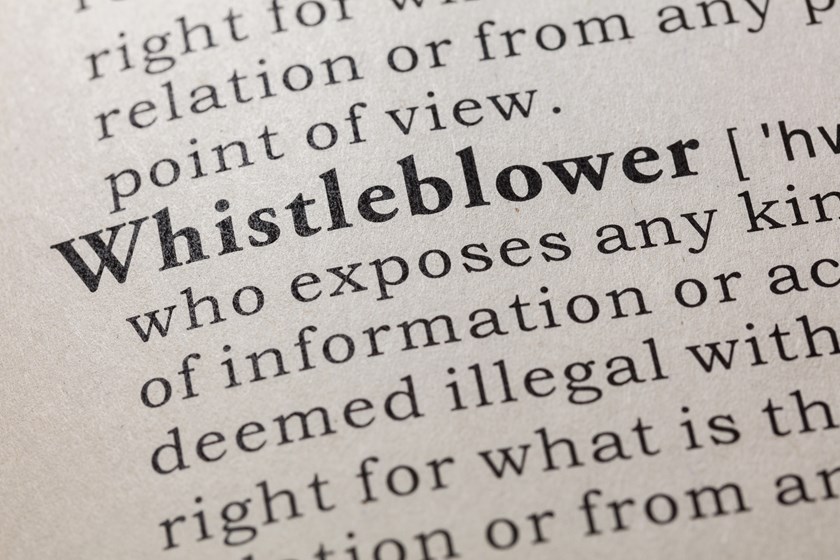Victimisation – can employees claim compensation for not being invited to work drinks?
Blog

“Cashier handed £75,000 because she wasn’t invited out to work drinks”. This is one of several attention-grabbing headlines about the recent Employment Tribunal decision in Ms R Leher v Aspers (Stratford City) Ltd and Others, in which Ms Rita Leher, a cashier at Aspers ‘super casino’, took her employer to tribunal for, amongst other things, victimisation, and won. According to such reports, Ms Leher did so because she felt “shunned” by her colleagues, who had organised team drinks in front of her but specifically singled her out from being invited.
However, as is usually the case with such eye-catching headlines, this narrative represents an oversimplification of the findings of this case. Here we look further at the facts of this case and examine what constitutes victimisation under the Equality Act 2010 and what employers can do to avoid it.
What were the Tribunal’s findings?
Ms Leher is of mixed black African heritage and, at the time of starting work as a cashier for Aspers in 2011, was nearly 41 years of age. In 2019, shortly before she resigned from Aspers, Ms Leher brought successful claims against her employer for race and age discrimination, victimisation, and constructive unfair dismissal. For those successful claims, she was awarded £74,113. Here are the main findings:
- During the course of her employment, Ms Leher applied but was unsuccessful for promotion within Aspers on at least eight occasions. Ms Leher raised a grievance about one of these roles, alleging that contrary to Asper’s Equality and Diversity Policy, a younger, white colleague was promoted to cash desk supervisor without the appointment being advertised or Ms Leher having the chance to apply .
- In a second grievance, Ms Leher alleged she had been victimised because of her first grievance by being ignored by her colleagues, micromanaged and suffering ongoing discrimination in promotion. The HR Director dismissed her further claims and discouraged her use of the term “discrimination” issuing veiled threats that Ms Leher might be disciplined the next time she complained of discrimination if Aspers took the view that her complaints were “not substantiated”.
- Ms Leher also complained that she was given short changeover shifts more frequently than her colleagues, was not given handover information and had requests for a games table refresher training course ignored, despite it being given to a younger, white employee . It was also during this time that Ms Leher was the only person excluded from after work drinks by her colleagues.
- In February 2019, Ms Leher presented a Tribunal claim for age and race discrimination and victimisation and harassment, and in April 2019 she resigned by letter, stating that her employment at Aspers had become “intolerable”.
Among its other findings the Tribunal ruled that Ms Leher had been unlawfully victimised. It concluded that it was specifically because of her discrimination complaints that Ms Leher was given short changeover shifts, no handover information and had her “genuine complaints” of discrimination “rubbished” by the HR Director. Moreover, the Tribunal unanimously agreed that Ms Leher’s exclusion from work drinks did constitute victimisation and was a direct result of her complaints of discrimination, of which those colleagues excluding her were aware.
With regard to her discrimination claims, the only successful claim was her employer’s failure to respond to her request for refresher training. The Tribunal agreed that offering it to a younger, white colleague, but not to Ms Leher, amounted to direct race and age discrimination.
What constitutes victimisation?
Victimisation occurs where an individual is subjected to a detriment because they have done, or might do, a “protected act” (or because the respondent believes the claimant has done, or might do, such an act).
A “protected act” is defined in the Equality Act and includes: making an allegation of unlawful discrimination, bringing a discrimination claim or giving evidence in connection with discrimination proceedings. Such allegations must be made in good faith in order to be protected acts.
In Ms Leher’s case, both her first and second grievances amounted to protected acts and the Tribunal found that Ms Leher’s detrimental treatment by her employer and colleagues only happened because she had raised them.
What can employers do to avoid victimisation in the workplace?
This case serves as a reminder of the risks of victimisation claims to employers, who will want to avoid facing expensive and reputationally damaging consequences of such claims.
Some of the key things to remember are:
- Denying someone a promotion or training opportunities – and, yes, even excluding them from conversations and activities, such as team drinks - are enough to be considered “a detriment” under equality legislation. If that detriment is a consequence of a complaint that equality legislation has been breached, then that employer could open themselves up to potential discrimination and victimisation claims.
- The claimant does not need to have a protected characteristic. It is the protected act that is relevant.
- Even if the actual discrimination claim fails, a claimant could still have a successful victimisation claim. Indeed, Ms Leher’s original complaint of discrimination at being passed up for promotion was not upheld by the Tribunal - although her subsequent claims of victimisation because of this complaint were.
- False statements made in bad faith are not protected. But provided that an employee has acted in good faith, they are protected from victimisation, even if their allegations are not upheld by the employer or they turn out to be incorrect.
- A respondent organisation taking honest and reasonable steps to protect itself against litigation will generally not be liable for victimisation.
- Employers are legally responsible for victimisation committed by their employees in the course of employment, regardless of whether they know about or approve of the employees’ acts. There is however a potential defence available to an employer if it can show it took “all reasonable steps” to prevent such behaviour from happening. For information on the reasonable steps defence, see our blog on Equality and Diversity Training.
- Practical steps an employer could take to avoid victimisation happening in their workplace include:
- Regularly training managers and staff so they understand what “discrimination” and “victimisation” mean and their responsibilities to avoid both.
- Dealing with grievances promptly and investigating complaints of discrimination to establish if there is any basis to the complaint and then taking appropriate action.
- Not allowing staff to create a hostile atmosphere at work following a discrimination complaint.
- Keeping accurate, contemporaneous records of the reasons for decisions, such as why an employee faced disciplinary action or why an applicant was not promoted.
- Being careful during recruitment decisions, so that decisions to withdraw a job offer (or not make one) are not made because a candidate has given evidence or raised a discrimination claim against a previous employer, and keeping records demonstrating the reason behind your recruitment decisions.
- Not refusing to provide a reference or giving a negative reference in response to an employee having brought discrimination proceedings or given evidence against your organisation.
- Regularly training managers and staff so they understand what “discrimination” and “victimisation” mean and their responsibilities to avoid both.
And while not inviting someone to work drinks, in itself, is unlikely to result in a successful victimisation claim, perhaps the safest course of action is to foster a culture of inclusion in the workplace, so that no one feels singled out or excluded.
If you require further information about anything covered in this blog, please contact Serena Nicholls, Iman Kouchouk or your usual contact at the firm on +44 (0)20 3375 7000.
This publication is a general summary of the law. It should not replace legal advice tailored to your specific circumstances.
© Farrer & Co LLP, June 2022







